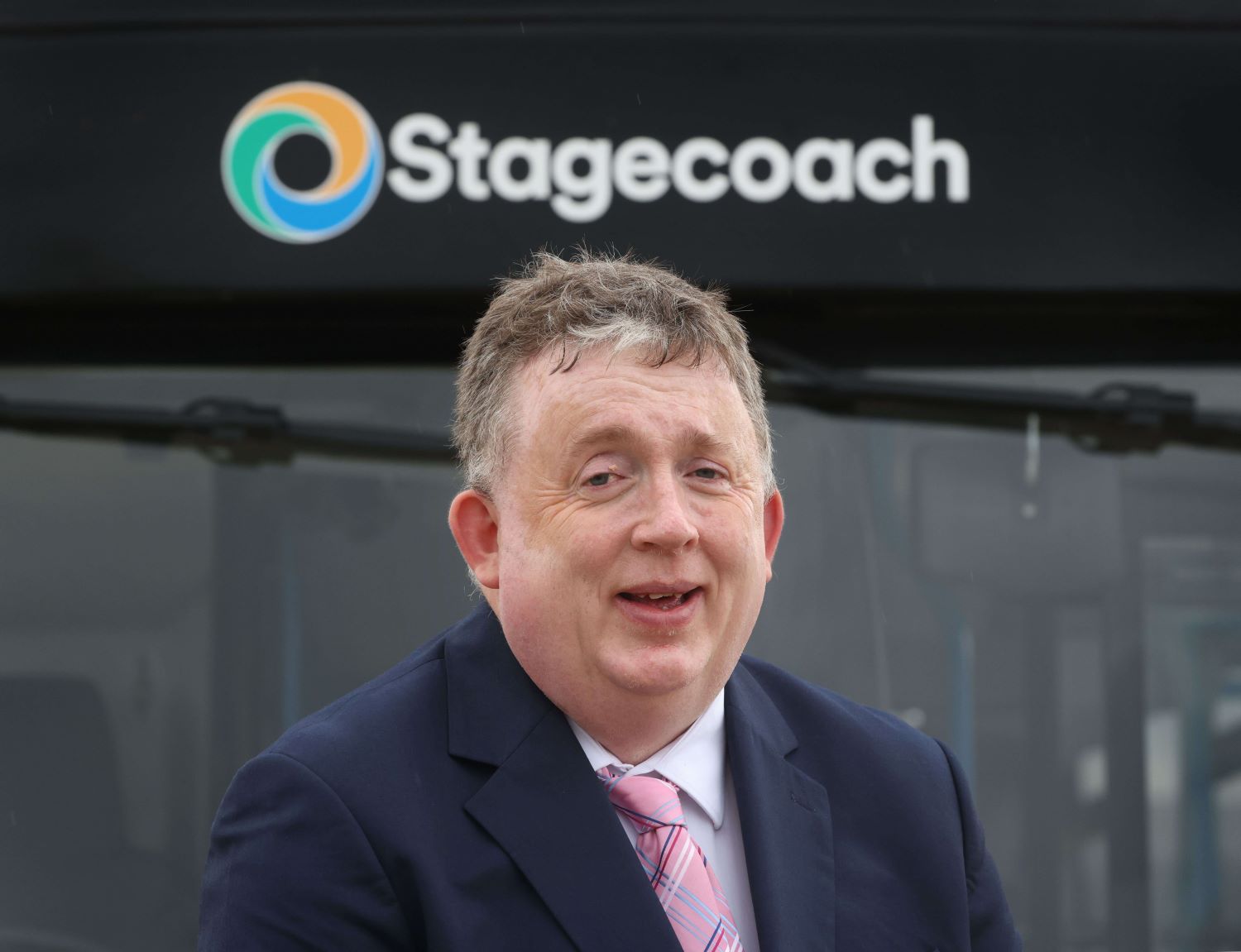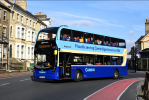Not quite running down the whole business but certainly examples of poorly running big key routes so that the local authority ends up throwing more and more money at them and then suddenly there are drivers and buses available as soon as the LA opens the purse. Very convenient. It's not just East who are doing it, Merseyside & South Lancs division are doing it too but it doesn't make it right. Regular passengers suffer and the taxpayers are short changed.
If you scroll back to the start of this thread, there were some posters who were suggesting that this is exactly what Stagecoach were doing. Deregistering stuff in order to get combined authority monies.... yet what actually happened is that they got very little of that work. It went to Dews, to Whippet, and to Stephensons. In fact, given the challenges they had in resourcing in 2022 (as most firms did), they were probably pleased to offload it. You do seem to believe that this is now standard policy to try and fleece local authorities whereas most bus company managers will point to massively increased costs (mainly drivers' wages to be able to recruit and retain) and coupled with services that still have fewer concessionary passengers, some services simply don't make financial sense. Why would anyone run buses at a loss?
That's not to say that Stagecoach East hasn't got problems. I remember posting about a trip two years ago (almost to the day) about a trip on Stagecoach East and how the business had some real challenges around Peterborough. I think I mentioned about a horribly underpatronised trip across the Fens from March to St Ives on a leather seated, air conditioned Eclipse and wondering about how the economics of that worked out. Peterborough operations were suffering from a driver shortage and it was evident that the business
needed investment (and yes, 30 new electric deckers helped in that regard). Arguably, it has an age profile that most firms would welcome, yet it still needs more "standard" fleet replacement.
Not really. The cuts to Bedford express due to supposedly low patronage. And if they are having driver recruitment and retention issues, stop being greedy taking on more work and don't go and waste resources competing with Arriva in Luton. They were keen to take on more of the combined authority tenders too when they were up recently. Further to that, if they are still struggling so much with drivers, that suggests a problem within the company rather than an external issue. There are depots which are currently overstaffed and plenty of depots are freeing up staff to go on loan. Is it poor pay, poor shifts, poor management? Something within the companies control must be causing them to still have such a shortage and why is it that this shortage suddenly disappears as soon as the local authority decides it is going to send out lots of tenders?
I think here, you're conflating multiple issues. I remember the good old X5 with its coaches etc between Oxford and Cambridge. However, like many places, Stagecoach elected to move to buses; with part of the X5 (now 905) acting as a local bus service, it made some sense. That might be ok if the vehicles were the 67/69 plate ones that were moved across operated it but now, the 905 (and sometimes the remaining X5) weren't placed in the hands of ageing e400s that are 12-14 years old.
So if you're citing vehicle resources, I'd agree as those mmcs now feature on the MK1 and LAX. However, driver issues are much less in Bedford (and Peterborough) than they were in the bad days of 2022 when the industry was suffering as a whole.
@Magdalia is right that the employment market is more challenging in Cambridge but even then, it has eased.
Stagecoach East certainly isn't immune from criticism. The service 1 in Peterborough is a killer route and yet it desperately needs newer vehicles. If the 905 and X5 were to be properly resourced with better vehicles (see the First Excel route in Norfolk, the WitchWay in Lancashire) and were properly marketed as they used to be, the results would be better. However, Stagecoach East seems to have lost that marketing and operational verve.
Agreed, but in the Cambridge area the main cause of that instability is congestion not timetables.
The real challenge is congestion in Cambridge, as you say. Compare the approach (and bravery) of the local authority there in comparison with Oxford or Norwich and it seems like the hierarchy is private car, bicycles, and then buses. A trip in on Huntingdon Road is illuminating - so bus priority at all yet roadside parking proliferates as do cycle lanes.
I think your comments about the iterative cycle of service changes is fair enough though, being balanced,
@markymark2000 is also right to say that some stability is required by passengers.
In the Cambridge area the economy is booming, it is effectively at full employment, and housing costs are very expensive. People with driving skills can get better paid jobs with other employers. In Cambridge Stagecoach also has to compete for drivers with the operators of the private contract services to/from Granta Park and Capital Park.
As I said above, Cambridge (and South Cambs) was really bad esp in 2022 which was the nadir across the country for recruitment and retention. You're right, it is still a challenging market to recruit and retain. I understood the logic of consolidating routes into fewer depots and cutting some of the outbases; how March survived so long was a modern day miracle. Yet it does mean that you have reduced your pool of recruiting staff.
I suspect that labour market will continue to loosen slightly as the Brexit/Covid impacts unwind but it will be a challenge in Cambridge that, as you say, is one of the boom places in the country.


 I suspect it may be a bit more successful now than it was back in 2018.
I suspect it may be a bit more successful now than it was back in 2018.